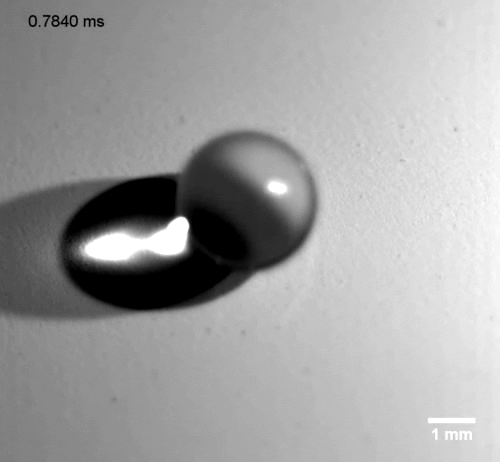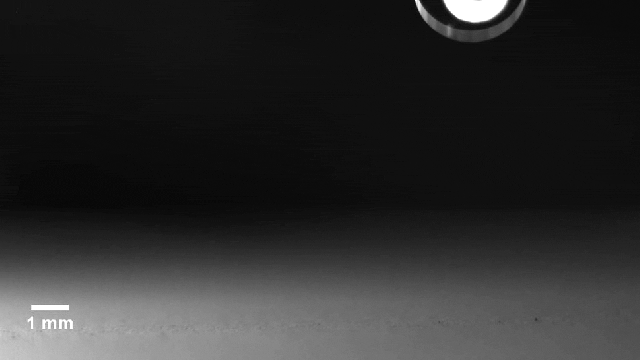Ah, that fresh smell just after it rains. It brings a sense of calm to the world. But did you know that it could kill you? That’s right, rain launches (mostly harmless) bacteria into the air and in rare cases it can spread disease. Scientists didn’t fully understand how the process works until now.
Image: Young Soo Joung
A group of mechanical engineers published a paper in Nature yesterday that explains how that earthy smell manages to get from the ground to your nose.
A chemical called geosmin is responsible for the aroma that follows rainfall and is also part of the reason beetroots taste the way they do. That has been understood for a while. But scientists did not know how it was scattered through the air by tiny drops of rain. NPR reports:
Using high-speed cameras and fluorescent dye, the researchers filmed drops of water as they fell on different types of soil infused with bacteria. They watched as the drops delicately catapulted the microbes into the air.
When a raindrop hits the ground at the right speed, it traps air bubbles beneath it, each one no wider than a human hair.
Like an air bubble stuck under a container at the bottom of a pool, those bubbles then rise, bursting when they reach the surface.
As the bubbles burst, they send a spray of tiny water jets into the air, sometimes carrying bacteria with them.

The team found that one drop of rain sprayed hundreds of small droplets that each carried thousands of live bacteria. The bacteria is able to survive in the almost invisible droplet for around an hour. Once airborne, the bacteria is carried by the wind. Cullen Buie, one of the researchers on the project, says that the next step will be to find out how far the bacteria can travel.
The bacteria is no big deal. It isn’t going to hurt you. But the reason Buie and her partners began this study is because they were contacted by a British scientist who was concerned about the spread of melioidosis during the rainy season in Southeast Asia and northern Australia. The infectious disease is treatable but without proper antibiotics it can have a 90 per cent mortality rate.
These researchers aren’t the first to connect the spread melioidosis to precipitation, but they’re adding to our understanding. And they want to emphasise that you shouldn’t worry about this extremely rare disease. For almost everyone, it should be fine to breathe deep after the rain.
[NPR]
